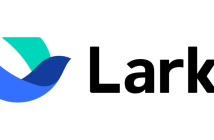If you’ve ever been considering treatment options and are looking into an intensive outpatient program, then you should first know what’s involved in the process before you jump right in. It is a type of therapy program that has an individual come in for a few hours a day, three to five days out of the week. What else is involved in IOP?
- The Two Ways Intensive Outpatient Programs Are Used
An intensive outpatient program can be used in one of two ways. It can be used when an individual is at risk of hospitalization and regular outpatient therapy is insufficient, and as a stepping stone from a higher level of care. It is usually a step down for someone who has been in inpatient treatment, and is a transition period back to their regular lives.
- The Modalities of IOPs
Depending on the individual or the type of program, modality of treatment can vary. The most common modalities are:
- Cognitive Behavioral Therapy: called CBT for short, it is based on the idea that individuals can be given the skills to confront their triggers and reframe their cognitive distortions that caused maladaptive behaviors. CBT works well in IOPs because individuals are still in normal situations and can test out these skills right away.
- 12-Step Facilitation: the model was originally developed to help those in Alcoholics Anonymous, and is used for those who have issues with drug abuse, eating disorders, or other compulsive disorders. The great thing about this type of treatment is that there is great community support during the process as well as after IOP is over.
- Motivational Enhancement Therapy: this method is designed to determine someone’s concerns in regards to treatment and changing their behaviours. This acknowledges that substances and behaviors did serve a purpose for the individual but that these also need to be confronted so that the individual can work towards their own goals.
- Matrix Model: this is a combination of the three modalities mentioned above in varying amounts, depending on the individual’s needs.
- Types Of IOPs
Intensive outpatient programs were originally developed to help those with substance abuse disorders, but they are now used for the treatment of different kinds of conditions. Some different kinds of IOPs include:
- substance use
- eating disorders
- dual diagnosis
- depression/mental health
- What To Expect In An IOP
Treatment involves three to four hours per day, several days throughout the week for about four to six weeks. The sessions involved in this kind of program can be a combination of individual and group therapy that are designed to help individuals cope with their emotional or behavioral issues that they are struggling with.
- How To Find An IOP
You could do an online search for IOPs in your area, but it would be better to get a recommendation from a mental health professional if you can. The United States Substance Abuse and Mental Health Administration also makes it easy for you to find a program in your area through their website.
Compiling a list of program centers can be a good idea, so that you can have a few to choose from. Create a list of important questions you want to ask, such as what issues/diagnoses they’ve dealt with, what the structure of the program is, and if they take your insurance. This will likely narrow down your list until you find the right program for you.





Great article! I think this is one of the best articles ever written.